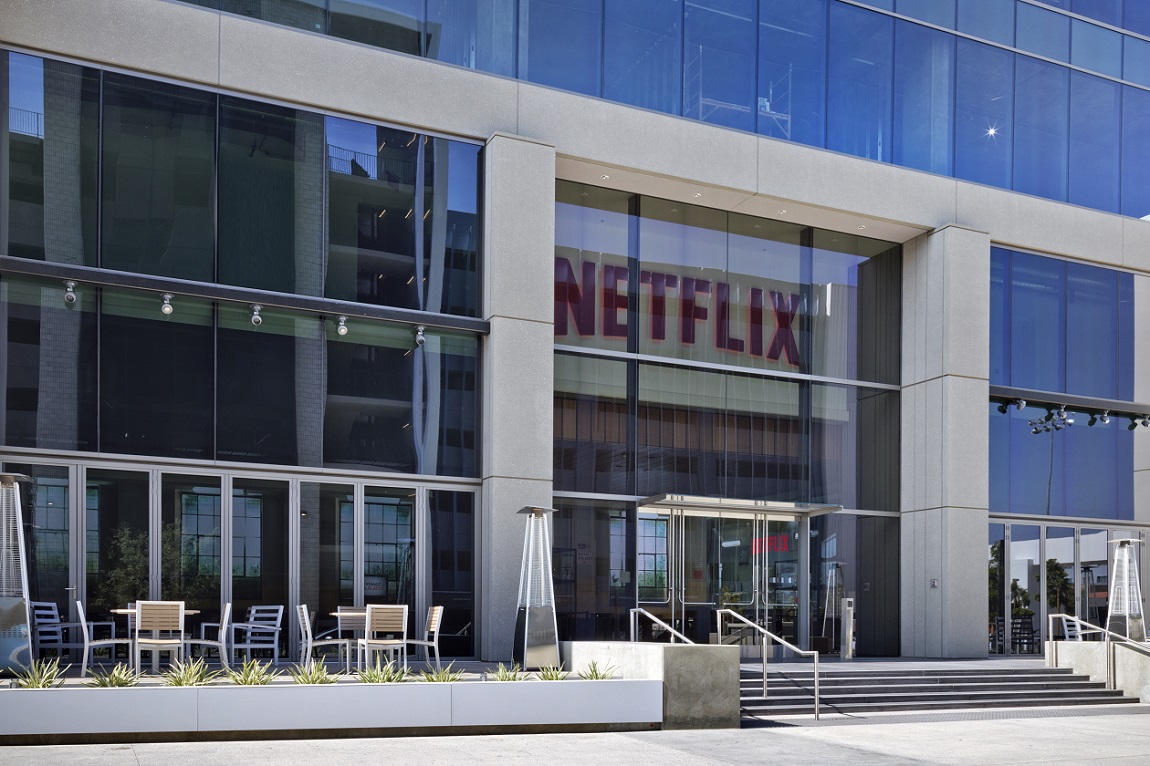News dropped last week about the potential purchase of MGM by Amazon and it left me a little underwhelmed. The motivations for that purchase should be obvious. Amazon has been investing a lot of money into producing content for its Amazon video streaming service, so it makes sense to purchase an organization that already has in place the infrastructure to produce and distribute that material.
Along with the purchase, Amazon will be getting an extensive and expansive video library including several thousand movies that it will obviously make available on its streaming service and make them more competitive against Netflix, Hulu, Disney+ and HBO Max so that alone makes it worth the 8.45 billion-dollar price.
I expect the sale to go through and to say that I’m unhappy about it is a bit of an understatement. Truth is that I’m a lot more than just frustrated, but it’s not because I don’t like Amazon or its founder, Jeff Bezos, but because I think that this sale is a symptom of the problems with the entertainment industry as a whole.
I’m disappointed in the direction that streaming has gone. In 2010 or so when I purchased my first Roku and was introduced to the world of Video On Demand, I saw the potential of streaming and how it could be so much better than cable could be. Netflix, being the first company to offer streaming content on this scale, had a wide variety of material to offer its customer base while picking and choosing the most popular movies and TV shows produced by Fox, Paramount and yes even MGM, to their subscribers and the potential of this type of service was mind-blowing.
It seemed only limited only by someone’s imagination. Imagine a streaming service that would target fans of Sci-fi movies and TV shows. A one-stop shop subscription service to watch Battlestar Galactica, Star Trek and Planet of the Apes, in all of their various formats, and remakes over the course of their history. Imagine a streaming service where they could target a predominantly black audience with movies and TV shows, a place where you could go to watch Chris Rock with your kids and introduce them to Redd Foxx by watching Sanford and Son or the antics of George Jefferson on “The Jefferson’s”.
That was the direction that I hoped streaming would take us, but it failed to deliver. I can’t really blame Roku, Amazon or even Netflix for this. In my opinion, it’s the corrupt studio system we currently have that is at fault. I believe that streaming is beginning to closely resemble what led up to the United States vs Paramount lawsuit, a pattern I’ve seen gradually developing over the course of several decades.
I recently watched a Captain Midnight video on YouTube where he gave his opinion on the SYFY channel and I actually share many of his views, but I think that he missed something significant which also contributed to the decline of the SYFY channel. The fact that it’s owned by NBC/Universal. I’ll try hard to prevent this from turning into another one of my Comcast sucks rants, which itself is a difficult task, and try to focus on why I’m concerned our entertainment industry is reverting back to the early days of movie-making leading up to the US vs Paramount lawsuit. Shortly after the lawsuit, movie studios had to convince movie theater owners that they had a hit on their hands that would be profitable for both the studio as well as the theaters. This is because theater owners were no longer obligated to show a movie that they didn’t like.
I saw The Empire Strikes Back in the theater for the first time it was at the River Hills and Rivera theater in Downtown Des Moines. It had a capacity of about 1200 people and was the only theater in central Iowa large enough to seat the obvious crowds that the movie would attract. When a theater only has one screen with that capacity you could bet that they are showing a film because it is a major hit where few seats were empty during the showings. The owners of the theaters decided which movies they thought were going to be popular and the paying audience determined how long the theater would be showing it. And as long as the movie attracted enough viewers to fill the seats, the theater owners would continue to show it.
The same is true with television. In the 1970’s, Universal purchased the rights for a book about an astronaut who was involved in a major accident while flying an experimental aircraft resulting in him being turned into a cyborg. That TV movie proved to be so popular that two more TV movies were commissioned later as a follow-up and eventually turned into a weekly series called The Six Million Dollar Man. If that wasn’t enough, one of the characters that they introduced and killed off in a two-part story arch proved to be so popular with the viewing audience that it was spun off into yet another series called The Bionic Woman.
While it may seem dated by today’s standards, both shows resonated with its audience at the time resulting in multiple reunion movies through the 80’s and 90’s and even today has a social media fan base (of which I belong too). Meanwhile, during this same time frame, Warner Bros (who didn’t own DC Comics at the time) produced a TV show based on the Wonder Woman comics which aired on ABC for one season. It proved to be too expensive for the network due to it taking place during WWII and it was canceled. Warner Brothers re-formatted the series and CBS picked it up for two seasons. At the same time, they also invested in another comic book hero based on the Incredible Hulk, a Marvel Comic hero, so for two seasons, two TV shows aired on the Tiffany Network based on comic book characters.
What does this have to do with Amazon purchasing MGM?
I think a lot.
Many studios are no longer required to cater to anyone. They no longer need to convince the TV networks that this series would do well on its channel because they own the networks where they will play. What I think Captain Midnight got wrong is that SYFY’s decline wasn’t due to SYFY picking poor material to show. It was because it was purchased by Universal and Universal decided that they were going to do everything in-house. Why should Universal convince MGM or Paramount Pictures to submit a pilot for a new Sci-fi series when they have the ability to make their own Sci-fi TV show or movie that they can put on there. It handcuffs the invisible hand.
Once Amazon’s purchase of MGM is complete it might be rare for their subscribers to see the Universal, Fox or Paramount logo at the beginning of a movie or TV show. Instead they will all begin with Leo the Lion roaring while looking into the camera and the same holds true for Hulu, Netflix, Peacock and HBO Max. Each movie and TV show on the platform will be made by the studio that owns the streaming service that you are watching it on, all of which you need to subscribe too, just like we’re seeing on the broadcast and cable networks.
If these studios have a popular hit, one worthy of subscribing to the service in order to watch it, they won’t have any incentive to allow it to be syndicated out to a competing service, one that would gather material to target a particular demographic or genre. With speculation that DVD and Blu-ray rental and sales in decline in favor of streaming it will soon become unlikely that you can purchase hard copies to put onto your Plex Server. I suspect that when it comes to franchise films like Star Wars and James Bond, we may get a few good movies or TV shows but ultimately the Studio’s will alienate many long-term fans. They won’t be incentivized to produce a show worthy of being aired on “The Tiffany Network” or “The SYFY” channel but rather to see how many new subscribers they can get.
I believe that in the long run it will end up being a financial disaster for the studio’s, people will quit subscribing to streaming services because they will refuse to pay a monthly fee for mostly crap. Die hard fans of some of the franchise material like The Mandalorian will subscribe once the whole season has been made available and binge watch it so that they only need to pay for one month of service, forcing the streaming services to resort to the tried and true “one year contract” plan in order to retard the hemorrhaging subscribers but once that contract expires many will leave and not look back. Movies like I, Robot which could have cross appeal on nonexistant streaming services modeled after SYFY and BET because its based on a story written by Isaac Asimov staring Will Smith won’t be allowed on that streaming service because it would be competing against Fox… or rather Disney, now…
Add to that, if long-term franchise fans become critical of the material produced, they will then become what is called a “toxic fan”.
I have little doubt that it will all work out, eventually. Studios will be forced to confront the idea that the reason why they are losing money is because they are not producing material good enough to attract an audience, or at least not frequently enough to maintain a subscription base needed to make a streaming service profitable. Rather than attack the fans who are critical of the material they are producing they will begin to listen to them, but it will come at a cost to them and to us as well. We’ll need to tolerate several years of declining quality in material because streaming services will be insulated from the criticism; “we’re fine, we are pulling in hundreds of millions of dollars each month from subscribers and those who are critical because they don’t like the direction we are taking the franchise don’t know quality when they see it, be gone with them!”
It’s the attitude we’re seeing now with many of these services (imagine me looking at Disney with stink eye right now) and I have faith that Amazon will treat criticism of its material the same way. Contrary to my negative opinions of Hollywood and the studio system that it has created, I actually want all of the studio’s to be successful. I know that they have the ability to produce some high-quality stuff, but they have created a system in which they no longer need to produce material that appeals to an audience. They have created a system in which they have total control of everything from the writing to the distribution. Because SYFY (and Peacock) is owned by Comcast, they won’t call upon other studios to propose movies, mini-series or weekly programs, they will simply call up one of their own producers and say “we need a new material, have it ready by the fall”.
I don’t think Amazon will be any different.






